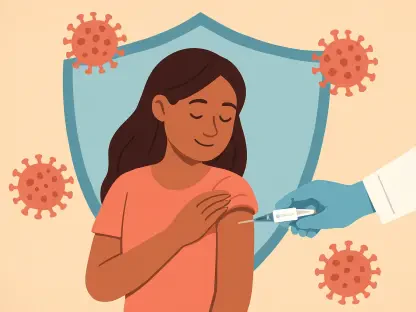In the rapidly evolving landscape of cancer treatments, Aumseqa (aumolertinib) has emerged as a promising advancement against non-small cell lung cancer (NSCLC) characterized by EGFR mutations. Recently approved by the Medicines and Healthcare products Regulatory Agency (MHRA), Aumseqa is specifically designed to target and block the epidermal growth factor receptor (EGFR), a protein that can become mutated and promote uncontrollable cell growth, leading to cancer. Mutations in EGFR are responsible for a significant number of NSCLC cases, making targeted treatments like Aumseqa critical in improving therapeutic outcomes. This novel treatment option is particularly significant for patients with advanced stages of NSCLC, bringing hope for better prognoses. Aumseqa’s clinical trial results have been compelling, showcasing its ability to reduce disease progression or mortality risk by 54% when compared to gefitinib, a comparable drug.
Advancements in Targeted Therapies
The approval of Aumseqa by the MHRA marks an important step in the ongoing efforts to expand targeted therapies in oncology, emphasizing the move toward more personalized treatments. The decision to approve Aumseqa is in line with the recent approval of another EGFR-focused drug, Lazcluze (lazertinib), from Johnson & Johnson, further illustrating the trend of prioritizing targeted therapies for lung cancer. Both medications reflect the broader movement in cancer treatment toward embracing precision medicine strategies rooted in genetic profiling. These personalized approaches allow oncologists to tailor treatments to the genetic makeup of cancer, thus enhancing therapeutic effectiveness while minimizing adverse effects. The shift toward precision medicine not only improves patient safety but also ensures that treatments are better suited to combat the specific nature of each patient’s cancer, underscoring the potential of genetically guided therapies.
Implications for Personalized Medicine
The introduction of Aumseqa into the realm of NSCLC treatment aligns with the overarching trend in oncology to employ more individualized therapies focused on genetic mutations specific to each patient. This advancement stands as a testament to the ongoing efforts to recognize cancer’s genetic underpinnings and address them directly. As these targeted therapies gain traction, they promise enhanced treatment efficacy and improved patient safety. Introducing drugs tailored to genetic profiles represents a significant departure from traditional cancer therapies, enabling a more educated approach to combating the disease. Looking forward, the success of drugs like Aumseqa in clinical settings will likely encourage further research and development in targeted treatments. With continual progress in genetic profiling, future oncology innovations are set to transform how cancer is treated, inching closer to more effective and safer therapeutic options driven by patients’ unique genetic landscapes.









